

July 21 – 27: “Do you read or write in other genres?”
 You write what you read, or so the old saying goes. This week join ITW Members and thriller writers Amy Lignor, Steve Philip Jones, David M. Salkin, Terri Anne Stanley, Merry Jones, Maegan Beaumont, Steve Attridge, Wendy Tyson, Sam Cabot, Alan Brenham, Luke McCallin, A.J. Colucci, Robert K. Lewis and Brian Poole to ask: “Do you read or write in other genres?”
You write what you read, or so the old saying goes. This week join ITW Members and thriller writers Amy Lignor, Steve Philip Jones, David M. Salkin, Terri Anne Stanley, Merry Jones, Maegan Beaumont, Steve Attridge, Wendy Tyson, Sam Cabot, Alan Brenham, Luke McCallin, A.J. Colucci, Robert K. Lewis and Brian Poole to ask: “Do you read or write in other genres?”
~~~~~
 A. J. Colucci is the critically acclaimed author of THE COLONY and SEEDERS, stories that combine true, cutting-edge science with the adrenaline-rush a thriller. Her books have received praise from several New York Times bestselling authors including Steve Berry, James Rollins, Scott Sigler and Steve Alten. A.J. has also written hundreds of newspaper and magazine articles covering everything from the computer and film industries to fortune 500 companies as well as interviews with famous celebrity authors, actors and musicians.
A. J. Colucci is the critically acclaimed author of THE COLONY and SEEDERS, stories that combine true, cutting-edge science with the adrenaline-rush a thriller. Her books have received praise from several New York Times bestselling authors including Steve Berry, James Rollins, Scott Sigler and Steve Alten. A.J. has also written hundreds of newspaper and magazine articles covering everything from the computer and film industries to fortune 500 companies as well as interviews with famous celebrity authors, actors and musicians.
 Teri Anne Stanley has been writing since she could hold a crayon–though learning to read was a huge turning point in her growth as a writer. Teri’s first stories involved her favorite Saturday morning cartoon characters, followed by her favorite teen idols. She has also authored a recipe column (The Three Ingredient Gourmet), and scientific articles (Guess which was more interesting!). Now she writes fun, sexy romance filled with chaos and havoc, populated by strong, smart women and hunky heroes.
Teri Anne Stanley has been writing since she could hold a crayon–though learning to read was a huge turning point in her growth as a writer. Teri’s first stories involved her favorite Saturday morning cartoon characters, followed by her favorite teen idols. She has also authored a recipe column (The Three Ingredient Gourmet), and scientific articles (Guess which was more interesting!). Now she writes fun, sexy romance filled with chaos and havoc, populated by strong, smart women and hunky heroes.
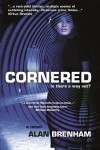 Alan Brenham is the pseudonym of Alan Behr, an American author and attorney. He served as a law enforcement officer before earning a law degree from Baylor University, and worked as a prosecutor and criminal defense attorney for twenty-seven years. His personal and official travels took him to several European and Middle Eastern countries, Alaska, and almost every island in the Caribbean. While contracted to U.S. military forces, he resided in Berlin, Germany, for two years. Alan and his wife, Lillian, currently live in the Austin, Texas area.
Alan Brenham is the pseudonym of Alan Behr, an American author and attorney. He served as a law enforcement officer before earning a law degree from Baylor University, and worked as a prosecutor and criminal defense attorney for twenty-seven years. His personal and official travels took him to several European and Middle Eastern countries, Alaska, and almost every island in the Caribbean. While contracted to U.S. military forces, he resided in Berlin, Germany, for two years. Alan and his wife, Lillian, currently live in the Austin, Texas area.
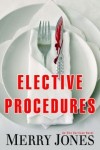 Merry Jones is the author of the Elle Harrison suspense novels (ELECTIVE PROCEDURES, THE TROUBLE WTH CHARLIE), the Harper Jennings thrillers (OUTSIDE EDEN, WINTER BREAK, BEHIND THE WALLS, SUMMER SESSSION), the Zoe Hayes mysteries (including THE NANNY MURDERS). She has also written humor (including I LOVE HIM, BUT…) and non-fiction (including BIRTHMOTHERS: Women who relinquished babies for adoption tell their stories.)
Merry Jones is the author of the Elle Harrison suspense novels (ELECTIVE PROCEDURES, THE TROUBLE WTH CHARLIE), the Harper Jennings thrillers (OUTSIDE EDEN, WINTER BREAK, BEHIND THE WALLS, SUMMER SESSSION), the Zoe Hayes mysteries (including THE NANNY MURDERS). She has also written humor (including I LOVE HIM, BUT…) and non-fiction (including BIRTHMOTHERS: Women who relinquished babies for adoption tell their stories.)
 Wendy Tyson’s background in law and psychology has provided inspiration for her mysteries and thrillers. Originally from the Philadelphia area, Wendy has returned to her roots and lives there again with her husband, three kids and two muses, dogs Molly and Driggs. Wendy’s short fiction has appeared in literary journals, including KARAMU, ECLIPSE, A LITERARY JOURNAL and CONCHO RIVER REVIEW. Wendy has authored KILLER IMAGE (Henery Press), the first in the Allison Campbell mystery series, and THE SEDUCTION OF MIRIAM CROSS (E-Lit Books). DEADLY ASSETS, the second novel in the Campbell series, will be released July 22, 2014.
Wendy Tyson’s background in law and psychology has provided inspiration for her mysteries and thrillers. Originally from the Philadelphia area, Wendy has returned to her roots and lives there again with her husband, three kids and two muses, dogs Molly and Driggs. Wendy’s short fiction has appeared in literary journals, including KARAMU, ECLIPSE, A LITERARY JOURNAL and CONCHO RIVER REVIEW. Wendy has authored KILLER IMAGE (Henery Press), the first in the Allison Campbell mystery series, and THE SEDUCTION OF MIRIAM CROSS (E-Lit Books). DEADLY ASSETS, the second novel in the Campbell series, will be released July 22, 2014.
 Sam Cabot is the pseudonym for Carlos Dews and S. J. Rozan. Carlos Dews is an associate professor and chair of the Department of English Language and Literature at John Cabot University, where he directs the Institute for Creative Writing and Literary Translation. He lives in Rome. S. J. Rozan is the author of many critically acclaimed novels and short stories that have won crime fiction’s greatest honors, including the Edgar, Shamus, Anthony, Macavity, and Nero awards. Born and raised in the Bronx, Rozan now lives in lower Manhattan. This is their second novel.
Sam Cabot is the pseudonym for Carlos Dews and S. J. Rozan. Carlos Dews is an associate professor and chair of the Department of English Language and Literature at John Cabot University, where he directs the Institute for Creative Writing and Literary Translation. He lives in Rome. S. J. Rozan is the author of many critically acclaimed novels and short stories that have won crime fiction’s greatest honors, including the Edgar, Shamus, Anthony, Macavity, and Nero awards. Born and raised in the Bronx, Rozan now lives in lower Manhattan. This is their second novel.
 Steve Attridge has won RTS Awards, Writers Guild Awards and BAFTA nominations. His work includes stage and radio plays, TV series, individual TV dramas, and feature films, including the award winning GUY X. He wrote a book about the Boer War, and won an Eric Gregory award for poetry. His latest novel, his 15th book, published in July 2014 is called THE NATURAL LAW, the second about philosopher detective Paul Rook. The first, Philosophical Investigations, reached number 4 in the Amazon Kindle Singles bestsellers. Last year his play, CHAOS CARNAGE AND KULTURE, had a successful run at the Shakespeare Birthplace Trust.
Steve Attridge has won RTS Awards, Writers Guild Awards and BAFTA nominations. His work includes stage and radio plays, TV series, individual TV dramas, and feature films, including the award winning GUY X. He wrote a book about the Boer War, and won an Eric Gregory award for poetry. His latest novel, his 15th book, published in July 2014 is called THE NATURAL LAW, the second about philosopher detective Paul Rook. The first, Philosophical Investigations, reached number 4 in the Amazon Kindle Singles bestsellers. Last year his play, CHAOS CARNAGE AND KULTURE, had a successful run at the Shakespeare Birthplace Trust.
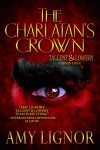 As the daughter of a career librarian Amy Lignor grew up loving books; ‘Patience & Fortitude’ at the NYPL are still her heroes. Beginning in the genre of historical romance with, “THE HEART OF A LEGEND,” Amy moved into the YA world where her first team from THE ANGEL CHRONICLES became a beloved hit. Moving into the action/adventure world with TALLENT & LOWERY, Amy has created a new, incredibly suspenseful, team that has once again exploded with readers everywhere. Born in Connecticut, Amy is now living in the bright sunshine of Roswell, NM, delving into her next adventure.
As the daughter of a career librarian Amy Lignor grew up loving books; ‘Patience & Fortitude’ at the NYPL are still her heroes. Beginning in the genre of historical romance with, “THE HEART OF A LEGEND,” Amy moved into the YA world where her first team from THE ANGEL CHRONICLES became a beloved hit. Moving into the action/adventure world with TALLENT & LOWERY, Amy has created a new, incredibly suspenseful, team that has once again exploded with readers everywhere. Born in Connecticut, Amy is now living in the bright sunshine of Roswell, NM, delving into her next adventure.
 Maegan Beaumont, the author of the award-winning Sabrina Vaughn series, is a native Phoenician who loves writing take-you-to-the-edge-of-your-seat thrillers. When she isn’t busy fulfilling her duties as Domestic Goddess for her high school sweetheart turned husband, Joe, and their four children, she is locked in her office with her computer, her coffee pot and her Rhodesian Ridgeback, and one true love, Jade.
Maegan Beaumont, the author of the award-winning Sabrina Vaughn series, is a native Phoenician who loves writing take-you-to-the-edge-of-your-seat thrillers. When she isn’t busy fulfilling her duties as Domestic Goddess for her high school sweetheart turned husband, Joe, and their four children, she is locked in her office with her computer, her coffee pot and her Rhodesian Ridgeback, and one true love, Jade.
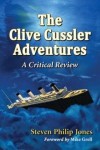 Steven Philip Jones’ novels and non-fiction books include KING OF HARLEM, THE CLIVE CUSSLER ADVENTURES: A CRITICAL REVIEW and COMICS WRITING: COMMUNICATING WITH COMIC BOOKS. Steven has also written over sixty graphic novels and a number of scripts for radio dramas. A graduate of the University of Iowa, Steven has a Bachelor of Arts in Journalism and Religion, and was accepted into Iowa’s Writer’s Workshop M.F.A. program.
Steven Philip Jones’ novels and non-fiction books include KING OF HARLEM, THE CLIVE CUSSLER ADVENTURES: A CRITICAL REVIEW and COMICS WRITING: COMMUNICATING WITH COMIC BOOKS. Steven has also written over sixty graphic novels and a number of scripts for radio dramas. A graduate of the University of Iowa, Steven has a Bachelor of Arts in Journalism and Religion, and was accepted into Iowa’s Writer’s Workshop M.F.A. program.
![Pageflex Persona [document: PRS0000040_00008]](https://www.thebigthrill.org/wp-content/uploads/2014/07/DeepBlackSea_eBook_FINAL-e1405370655957.jpg) David M. Salkin is an award-winning author, the Mayor of Freehold Township, New Jersey and a Master Graduate Gemologist who co-owns a fine jewelry store. DEEP BLACK SEA is Salkin’s seventh published novel, and his first hard cover novel is due out in September of 2014. Salkin’s books have spanned military espionage, action-adventure, horror, mystery and science fiction. David has twice been a panelist at Thrillerfest in New York, and has been featured in newspaper and magazine articles numerous times. David M. Salkin titles include: CRESCENT FIRE, NECESSARY EXTREMES, THE MOP, THE TEAM, FOREVER HUNGER AND DEEP DOWN.
David M. Salkin is an award-winning author, the Mayor of Freehold Township, New Jersey and a Master Graduate Gemologist who co-owns a fine jewelry store. DEEP BLACK SEA is Salkin’s seventh published novel, and his first hard cover novel is due out in September of 2014. Salkin’s books have spanned military espionage, action-adventure, horror, mystery and science fiction. David has twice been a panelist at Thrillerfest in New York, and has been featured in newspaper and magazine articles numerous times. David M. Salkin titles include: CRESCENT FIRE, NECESSARY EXTREMES, THE MOP, THE TEAM, FOREVER HUNGER AND DEEP DOWN.
 Luke McCallin was born in England, grew up in Africa, was educated around the world, and has worked with the UN as a humanitarian relief worker and peacekeeper in the Caucasus, the Sahel, and the Balkans. His experiences have driven his writing, in which he explores what happens to normal people put under abnormal pressures, inspiring a historical mystery series built around an unlikely protagonist, Gregor Reinhardt, a German intelligence officer and a former Berlin detective chased out of the police by the Nazis. THE MAN FROM BERLIN was published in 2013, followed by THE PALE HOUSE in 2014.
Luke McCallin was born in England, grew up in Africa, was educated around the world, and has worked with the UN as a humanitarian relief worker and peacekeeper in the Caucasus, the Sahel, and the Balkans. His experiences have driven his writing, in which he explores what happens to normal people put under abnormal pressures, inspiring a historical mystery series built around an unlikely protagonist, Gregor Reinhardt, a German intelligence officer and a former Berlin detective chased out of the police by the Nazis. THE MAN FROM BERLIN was published in 2013, followed by THE PALE HOUSE in 2014.
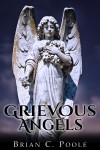 Brian C. Poole is an author, attorney and all-around pop culture junkie. A Boston area native and graduate of Boston College and Suffolk Law School, Brian’s published novels include Grievous Angels and Echoes of a Distant Thunder. You may also have read some prospectuses that Brian wrote, but for your sake, he hopes not.
Brian C. Poole is an author, attorney and all-around pop culture junkie. A Boston area native and graduate of Boston College and Suffolk Law School, Brian’s published novels include Grievous Angels and Echoes of a Distant Thunder. You may also have read some prospectuses that Brian wrote, but for your sake, he hopes not.
 Bay Area resident Robert K. Lewis has been a painter, printmaker, and a produced screenwriter. He is a contributor to Macmillan’s crime fiction fansite, Criminal Element. Lewis is a member of Mystery Writers of America, Sisters in Crime, the International Thriller Writers, and the Crime Writers Association. The Mark Mallen series first two novels are Untold Damage and Critical Damage. The third, Innocent Damage is out April 2015.
Bay Area resident Robert K. Lewis has been a painter, printmaker, and a produced screenwriter. He is a contributor to Macmillan’s crime fiction fansite, Criminal Element. Lewis is a member of Mystery Writers of America, Sisters in Crime, the International Thriller Writers, and the Crime Writers Association. The Mark Mallen series first two novels are Untold Damage and Critical Damage. The third, Innocent Damage is out April 2015.
- LAST GIRL MISSING with K.L. Murphy - July 25, 2024
- CHILD OF DUST with Yigal Zur - July 25, 2024
- THE RAVENWOOD CONSPIRACY with Michael Siverling - July 19, 2024
